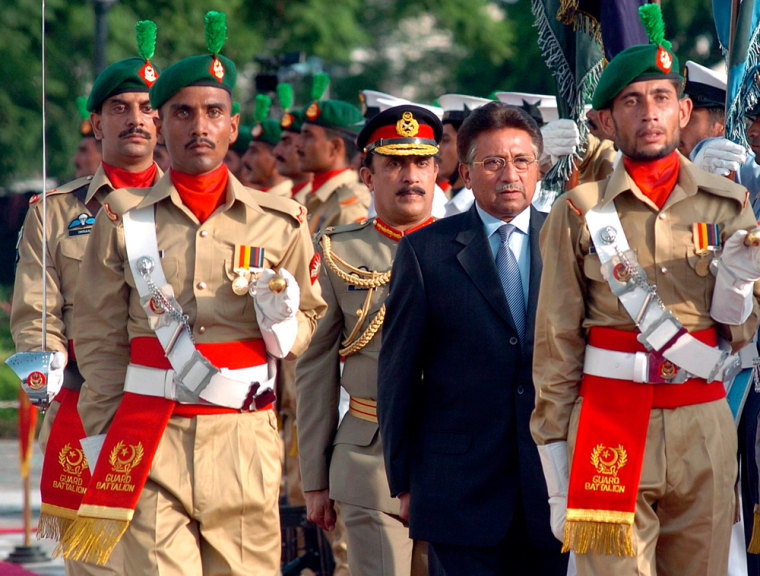The resignation of Pervez Musharraf removes a favorite bogeyman of Islamic militants both in and outside of Pakistan, but the government that forced him out is unlikely to change the policies that keep the jihadists fighting.
The outgoing Pakistani president — who abandoned Pakistan's support of the Taliban regime in Afghanistan and sided with Washington after the Sept. 11 attacks — has been largely sidelined since February elections brought his foes to power.
"It will take away a symbol of hatred but the essential issues don't end with Musharraf," said Shafqat Mahmood, a former government minister and political analyst.
The new civilian government headed by Prime Minister Yousuf Raza Gilani has done surprisingly little to change his policies in the militant-infested northwest regions bordering Afghanistan and wants to retain close ties with the United States, supporting the international fight against Islamic extremism.
In recent years, the Taliban movement has strengthened on both sides of the border, fueled by long-standing poverty, poor governance, frustration with military operations in Pakistan's northwest, and anger at U.S. operations inside Afghanistan. Suspected U.S. missile strikes in Pakistan's northwest tribal regions have only deepened the fury.
At the same time, Musharraf's departure could set up a new power struggle inside Pakistan over who should take his place, despite recent efforts by the coalition to strip the presidency of some of its powers while strengthening Parliament.
‘Virulent cancer’
Although suicide bombings overall have dropped since last year in Pakistan, the insurgent threat is as pervasive as ever.
"It's a virulent cancer that is eating into our society," said defense analyst Ikram Sehgal.
The coalition government's efforts to strike peace deals with militants are in tatters, and it is back to relying on the military to try to root out the extremists — as Musharraf did.
Though its reputation has been damaged by its affiliation with Musharraf, who used to be the army chief, the role of the military will be crucial, said Rasul Bakhsh Rais, a politics professor at Lahore's University of Management Sciences.
"The terrorists are not going to surrender. They have long-term objectives in the region," Rais said.
The military has indicated it will report to the civilian authorities, but it still appears to have considerable autonomy in dealing with the insurgent threat.
Pakistani Taliban spokesman Maulvi Umar said Monday that the Islamist movement was happy that Musharraf has resigned, but he called for an end to his policies — mainly the use of the military.
"This is a positive change, but it is just the beginning," Umar said. "If the government ends these policies, the Taliban will stop their activities immediately."
Almost daily occurrence
Militant attacks in various parts of the northwest are reported almost daily, and pro-Taliban insurgents have at times staged executions of people they claim are U.S. spies.
In recent weeks, a massive military operation against insurgents in Bajur, a tribal region, has killed nearly 500 people, the government says, and displaced more than 200,000.
Other operations, such as in Khyber tribal agency, have also sought to emphasize government authority, but they have only spurred militant promises of revenge.
Crossborder attacks surge
Meanwhile, officials say militant attacks across the border in Afghanistan have surged because so many of the insurgents are finding refuge in Pakistan's tribal regions.
The ruling coalition's main parties have been distracted since they took power over how to deal with Musharraf as well as how to restore dozens of judges he fired last year.
His departure could now force the new government to focus on the Islamist threat, said analyst Talat Masood.
The outgoing president's own future home may depend on the militant threat against him. He has survived multiple assassination attempts and there is speculation that he may seek exile abroad for his own safety.
Umar said the militants weren't simply happy with a Musharraf resignation.
"He should also be awarded strict punishment, because he is a culprit of the whole country," Umar said.
